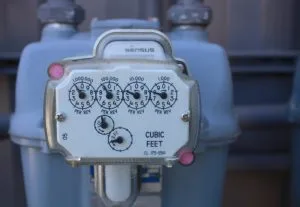How to Know if you Have a Furnace Gas Leak and What to Do
Modern gas furnaces are fantastic pieces of engineering. They keep us warm at home and are durable and efficient. However, like with any piece of machinery, there is always a chance of something failing. Perhaps the most dangerous form of failure possible is a furnace gas leak. While most modern furnaces are well-designed and have low failure rates, you should know how to identify and handle a gas leak. That way, you are prepared just in case something happens.
What is a Furnace Gas Leak and Why Are They Dangerous?
A furnace gas leak is an instance where the natural gas has escaped the gas line or the furnace and entered the home. Natural gas is vital to the operation of a furnace because it is the fuel that is ignited to create heat. However, natural gas is poisonous to humans when inhaled.
Normally, natural gas is quiet and odorless. When inhaled, the carbon monoxide blocks your blood from delivering oxygen to the rest of your body. This results in several symptoms:

- Headache
- Fatigue
- Eye, Throat, or Ear Irritation
- Nausea
- Dizziness
- Confusion
- Mood Changes
- Chest Pain
- Decreased Appetite
Eventually, it can lead to unconsciousness and death.
How to Know if you Have a Furnace Gas Leak
While natural gas is normally undetectable, the mechanics of your furnace and federal regulation have created several ways for you to detect a gas leak.
Carbon Monoxide Detector
The best and most reliable way to detect a gas leak early is to have a Carbon Monoxide Detector. You can, of course, buy one online or from your local home improvement store.
Some cities and counties have community programs where the fire department will inspect, replace, and install any needed smoke and carbon monoxide detectors. This is not offered in every community nationwide. If you recently moved into a new home or purchased a new HVAC system, it might be worthwhile to contact your local fire department and see if your community has one of these programs.
Rotten Egg or Sulfur-like Smell
Federal Law requires gas manufacturers to put a chemical called mercaptan in their natural gas. This chemical makes gas smell like sulfur or rotten eggs. If you smell a pungent odor that seems to come from your furnace or gas line, then you might have a gas leak.
Hissing Sound
While natural gas moves silently, it cannot escape your HVAC system silently. Natural gas is under constant pressure in the gas line and in the heat exchanger of the furnace. This means that when there is a leak, it will escape at a high speed and make a hissing sound. This hissing sound can originate from the line outside the furnace or the heat exchanger inside the furnace.
Dying Plants
Natural gas is not bad for plants, but it can still kill them. It does this by disrupting the oxygen in the plant’s soil and promoting the formation of hydrogen sulfide. If you notice that your indoor plants are wilting, inexplicably, then you should investigate your furnace and gas line.
Sick Pets
Pets can be more sensitive to natural gas than humans. If your pets are displaying symptoms similar to what we described earlier or if they have suddenly gotten sick, then it could be a gas leak.
What to Do if you Have a Furnace Gas Leak
If you have a leak, then you need to act quickly. Your home is no longer safe, and your family’s wellbeing should be a top priority. Here are the steps to take to keep your family and your home safe.
- Leave the House – If Nothing Else is Possible You Must Evacuate
- Extinguish Any Open Flames
- Turn off the Furnace
- Keep any Doors and Windows Open
- Call 911 or your Gas Provider
- If Possible, Shut Off Your Gas Line
Remember, leaving your home should be the top priority. Complete those other tasks as possible on your way out.
Who Are Advantage Heating and Air Conditioning?
We are your local HVAC Experts out of Salem, Oregon. We hope that this post gave you the information you need to be proactive and safe when it comes to gas leaks. If you have other questions about HVAC systems, check out our other blogs. To learn more about who we are and how we can help you, visit our website and follow us on social media – we’re here when you need us!





